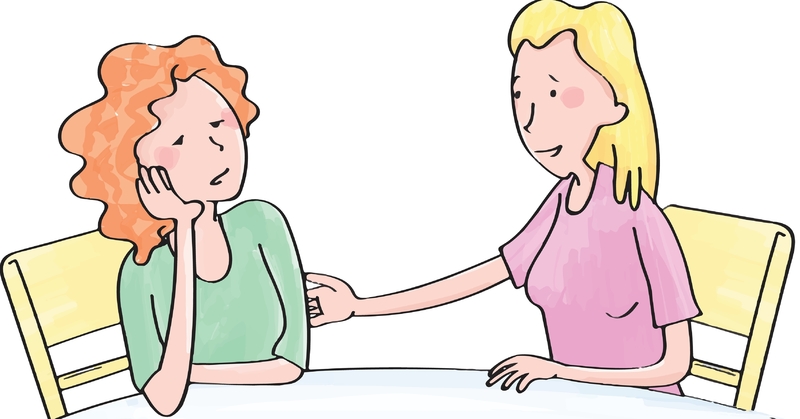
Here are some common suicide warning signs and what to do if you notice them.
Suicide is one the leading causes of death in the U.S. and has become a growing concern, with suicide rates rising nearly 15 percent in the last decade, according to the Centers for Disease Control and Prevention (CDC). The CDC reports that over 12 million people seriously thought about suicide in 2021 and 1.7 million people attempted it. Knowing how to recognize that someone you love may be thinking about suicide can go a long way in helping them.
Although it’s not always possible to know if a person is thinking about ending their life, there are certain warning signs that should be red flags. Just because someone exhibits these signs doesn’t mean they will definitely try to commit suicide. And just because they don’t show these signs doesn’t mean they won’t. It’s up to you to gauge what you think a person is thinking about or planning to do so you can decide when it is best to step in and say or do something.
Warning signs may relate to a person’s behavior, mood or what they say. A noticeable change in any of these things may indicate that a suicide attempt is imminent.
Here are common suicide warning signs:
- What a person says. People who are suicidal may come right out and say something straightforward like “I want to end my life” or “My life is not worth living.” Or their comments may be more subtle. They may talk about feeling hopeless, being a burden or not believing things will get better.
- What a person does. A person considering suicide may withdraw from people and activities they used to enjoy. They may also have trouble sleeping or may not feel like doing much of anything. The person may be making plans for when they’re gone, such as giving their stuff away. They may also exhibit an increase in substance use.
- How the person feels. People who are having suicidal thoughts may be sad, hopeless, angry or irritable. They may be highly reactive and may easily fly off the handle. Or they may be withdrawn and show no emotion.
These are not the only signs that someone is contemplating suicide and some of these signs do not mean a person is suicidal. But since the stakes of suicide are so high, it’s worth trying to help someone even if you are remotely concerned about their state of mind.
What to Say or Do If You Think Someone Is Suicidal
If you are worried about someone contemplating suicide, you may not be sure what to say or do and that’s understandable. Here are some tips that may help you help them:
- Tell the person you have noticed a change in how they are acting lately and that you’re concerned. Ask how they are doing and if there is anything you can do to help.
- Be direct and ask if the person is having thoughts of suicide. Some people are concerned that being so direct may make things worse, but experts say it won’t and may give the person an opening to talk about how they are feeling.
- Let the person know how much you love, value and appreciate them. Give them specific examples that show their worth.
- Ask the person if you can call the 988 Suicide and Crisis Lifeline with them. Explain that calling 988 can provide the help they need. Encourage them to call with you so you can be there to support them instead of them waiting to call on their own.
- Restrict the person’s access to guns, medications and other means that can be used in suicide attempts. If the person lives with you, this is easier to do than if they don’t. If the person doesn’t live with you, ask if you can hold their gun or give them a lock to safely store it. On average, it takes less than 30 minutes from the time a person decides to act on their suicidal thoughts until they carry out the action, so removing any means to do so may save the person’s life.
The 988 hotline is not only available for people who need to use it in a crisis. If you need support or information to help someone you think is suicidal, give them a call.
Copyright 2023 © Baldwin Publishing, Inc. Health eCooks® is a registered trademark of Baldwin Publishing, Inc. Cook eKitchen™ is a designated trademark of Baldwin Publishing, Inc. Any duplication or distribution of the information contained herein without the express approval of Baldwin Publishing, Inc. is strictly prohibited.
Date Last Reviewed: July 20, 2023
Editorial Review: Andrea Cohen, Editorial Director, Baldwin Publishing, Inc. Contact Editor
Medical Review: Perry Pitkow, MD
Learn more about Baldwin Publishing Inc. editorial policy, privacy policy, ADA compliance and sponsorship policy.
No information provided by Baldwin Publishing, Inc. in any article is a substitute for medical advice or treatment for any medical condition. Baldwin Publishing, Inc. strongly suggests that you use this information in consultation with your doctor or other health professional. Use or viewing of any Baldwin Publishing, Inc. article signifies your understanding and agreement to the disclaimer and acceptance of these terms of use.